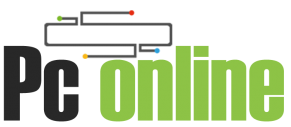Hospitals and clinics are increasingly adopting electronic health record (EHR) systems to improve the quality of patient care and increase operational efficiency. However, choosing the right EHR software solution can be a daunting task, given the number of vendors and options available in the market.
To help you select the best EHR system for your organization, we have compiled a list of 10 essential features that a good hospital EHR software solution should have:
- User-friendly interface– The hospital EHR system should be easy to use and navigate, with a user-friendly interface that requires minimal training for clinicians to get started. This will help ensure smooth adoption and reduce resistance from staff.
- Complete patient records– The hospital EHR system should provide a complete view of the patient’s medical history, including past visits, medications, allergies, lab results, and radiology reports. This will help clinicians make better-informed decisions about diagnosis and treatment.
- Automated charting– The hospital EHR system should automate the charting process to save clinicians’ time. This will free up clinicians to spend more time with patients and improve the quality of care. It’s also important that the system allows clinicians to easily access and update patient records.
- Electronic prescribing– The EHR system should enable clinicians to electronically prescribe medications, which can help reduce medication errors and improve patient safety. Aside from improving patient safety, electronic prescribing can also help save time and increase efficiency.
- Clinical decision support– The EHR system should offer clinical decision support tools, such as alerts and reminders, to help clinicians make better-informed decisions about diagnosis and treatment. This will improve the quality of care and help reduce the risk of medical errors.
- Population health management– The EHR system should offer population health management features to help clinics and hospitals better manage the health of their patient populations. This includes features such as disease registries, care coordination, and case management.
- Data analytics– The EHR system should offer data analytics tools to help clinicians track and analyze patient data. This will help them identify trends and patterns that can improve the quality of care. If the system includes a patient portal, clinicians can also use it to engage patients in their own care.
- Security and privacy– The EHR system should have robust security and privacy features to protect patient data. This includes features such as encryption, user authentication, and auditing. It’s also important that the system meets all applicable HIPAA requirements.
- Interoperability– The EHR system should be interoperable with other healthcare IT systems, such as hospital information systems, laboratory information systems, and pharmacy information systems. This will help improve data sharing and coordination of care.
- Support and training– The EHR vendor should offer comprehensive support and training to help clinics and hospitals successfully implement and use the system. This includes on-site training, user manuals, online resources, and live support. It’s also important that the vendor has a demonstrated track record of successful EHR implementations.
Choosing the right hospital EHR software solution is critical to the success of your healthcare organization. By taking the time to evaluate your needs and requirements, you can select the best system for your organization.
Do you have any other tips for choosing the right hospital EHR software solution? Share your thoughts in the comments below!


